The project, funded by CBE JU and coordinated by Tecnalia, has completed its first year, achieving significant milestones
The European project REDYSIGN celebrated its one-year anniversary in Tallinn, Estonia, marking a significant milestone in the mission to develop a circular bio-based alternative for fresh meat packaging using lignocellulosic materials. This research and innovation initiative brought together the 13 partners for the project’s third consortium meeting on October 9 and 10, 2024.
SIGNIFICANT MILESTONES OF THE PROJECT
In its first year, the REDYSIGN Project is making steady progress in creating a biobased, recyclable, and smart fibre-based packaging (FBP) alternative. Through the development of new technologies, the project aims to produce all packaging components—tray, barrier coating, pad, and film—from wood-derived materials, made possible by the close collaboration of all partners. Several key milestones have been accomplished across various workstreams.
One of the highlights has been the progress in wood fibre processing. Significant advances have taken place in the efforts to lower the energy consumption of fibre production as well as reducing the water needed through the development of high consistency functionalization of fibres. Besides, there are interesting results in the formulation of the bio-based product for film-tray adhesion.
In addition, considerable efforts have been dedicated to advance in the improvement of the traceability of the new fibre-based packaging (FBP), resulting in the achievement of three significant milestones:
- Testing of spoilage sensor materials and substrates.
- The setup for detection of traceability markers and contaminants is ready.
- Initial identification markers for an efficient sorting.
Another area of focus has been the action plan for evaluating the environmental aspects of REDYSIGN innovations using Life Cycle Assessment (LCA). In collaboration with technological partners, the process flows for each innovation has been defined, and an initial screening of substances expected in the manufacturing phase was conducted to assess chemical data availability. Moreover, the consortium has established and validated the baseline for the LCA hotspot analysis, which will serve as a reference for defining environmental impact categories and comparing them with innovative packaging solutions. A recent initiative includes the development of questionnaires for completing life cycle inventories, with the collection of mass and energy data currently ongoing.
As the REDYSIGN Project progresses, these achievements underscore the partner’s commitment to advancing sustainable packaging solutions through innovation and collaboration.
For further information, don’t forget to visit the project website


